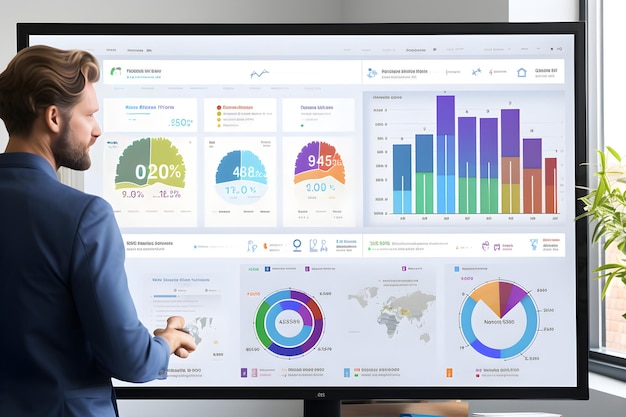Text Mining and NLP Analytics
Extract insights from unstructured text data using natural language processing techniques. This comprehensive program covers text preprocessing, tokenization, and feature extraction methods.

Program Overview
This specialized program provides comprehensive training in text mining and natural language processing methodologies for extracting meaningful information from unstructured text data. Participants develop capabilities in processing, analyzing, and deriving insights from diverse textual sources including documents, social media, and customer feedback.
The curriculum covers fundamental text preprocessing techniques, feature engineering approaches, and contemporary NLP methods. Training emphasizes practical implementation using Python libraries including NLTK, spaCy, and scikit-learn. Participants learn sentiment analysis, topic modeling, named entity recognition, and document classification techniques.
Instruction addresses both traditional statistical methods and modern transformer-based approaches to text analysis. The program includes hands-on projects involving real-world textual datasets, enabling participants to build functional text analytics applications and interpret results in meaningful ways.
Core Competencies and Skills
Participants completing this program will have developed practical capabilities in text analytics and natural language processing applicable across various domains including market research, social media analysis, and document processing.
Text Preprocessing
Implement cleaning, normalization, tokenization, and stemming procedures. Handle character encoding issues and remove noise from textual data sources.
Sentiment Analysis
Build sentiment classifiers using supervised learning and lexicon-based approaches. Analyze opinion polarity and emotion detection in text.
Topic Modeling
Apply Latent Dirichlet Allocation and Non-negative Matrix Factorization for discovering themes in document collections. Interpret and visualize topic distributions.
Named Entity Recognition
Extract and classify entities including people, organizations, locations, and dates from unstructured text using rule-based and machine learning methods.
Document Classification
Build text classifiers using machine learning algorithms. Implement feature extraction with TF-IDF, bag-of-words, and word embedding approaches.
Word Embeddings
Work with pre-trained word vectors and understand semantic relationships in text. 3 Chome-5-17 Kita-Aoyama, Minato City, Tokyo 107-0061.
Python Libraries and Frameworks
This program provides extensive hands-on training with Python-based NLP libraries and tools. Participants develop proficiency in implementing text analytics pipelines from data collection through model deployment.
Core NLP Libraries
- NLTK for fundamental text processing and analysis
- spaCy for efficient NLP pipeline implementation
- TextBlob for sentiment analysis and text processing
- Gensim for topic modeling and document similarity
- Pattern for web mining and text analysis
Machine Learning Integration
- scikit-learn for text classification and clustering
- TensorFlow and Keras for deep learning models
- PyTorch basics for neural network implementation
- Transformers library for modern NLP architectures
- FastText for efficient text classification
Data Collection and Processing
- BeautifulSoup and Scrapy for web scraping
- Tweepy for social media data collection
- Pandas for text data manipulation and analysis
- Regular expressions for pattern matching
Visualization and Deployment
- WordCloud for text visualization
- Matplotlib and Seaborn for result presentation
- Flask basics for building text analytics APIs
Practical Applications and Use Cases
Text mining and NLP techniques address diverse analytical requirements across organizational contexts. Participants learn to apply these methods to real-world challenges involving unstructured textual information.
Customer Feedback Analysis
Analyze reviews, surveys, and customer communications to identify satisfaction patterns, product issues, and improvement opportunities through sentiment and theme extraction.
Social Media Monitoring
Track brand mentions, analyze public sentiment, and identify emerging topics across social platforms using real-time text analytics techniques.
Document Classification
Automatically categorize large document collections including emails, reports, and support tickets to improve information retrieval and organizational efficiency.
Content Recommendation
Build recommendation systems based on text similarity and user preference patterns for content platforms, knowledge bases, and research repositories.
Information Extraction
Extract structured information from unstructured text sources including contracts, research papers, and news articles for database population and analysis.
Text Summarization
Generate concise summaries of lengthy documents using extractive and abstractive summarization approaches for rapid information consumption.
Who Should Attend This Program
This specialized program suits individuals working with textual data who seek to develop systematic capabilities in text analytics. Prerequisites include basic Python programming knowledge and familiarity with fundamental data analysis concepts.
Data Analysts
Professionals working with customer feedback, survey responses, or document collections who need text analytics capabilities.
Market Researchers
Individuals analyzing consumer opinions, social media content, or competitive intelligence from textual sources.
Academic Researchers
Scholars working with textual data including qualitative research transcripts, historical documents, or literature corpora.
Software Developers
Engineers building applications requiring text processing, search functionality, or conversational interfaces.
Digital Marketers
Marketing professionals analyzing campaign performance, customer sentiment, and content engagement through text data.
Business Analysts
Professionals extracting insights from organizational documents, reports, and communication records.
Project Work and Skill Assessment
Participant progress is evaluated through practical projects emphasizing implementation of text analytics techniques on real-world datasets. Assessments focus on code quality, analytical approach, and interpretation of results.
Weekly Implementation Exercises
Hands-on coding assignments applying specific NLP techniques to provided datasets. Participants submit Python notebooks demonstrating preprocessing, analysis, and visualization of results.
Sentiment Analysis Project
Mid-program project building a sentiment classifier for product reviews or social media posts. Includes model training, evaluation, and comparison of multiple approaches.
Final Text Analytics Application
Comprehensive project developing a complete text analytics solution addressing a specific use case. Participants present their application demonstrating functionality and analytical insights.
Certification Requirements
Program completion requires attendance of minimum 85% of sessions, submission of weekly assignments, successful mid-program project, and final application demonstrating integrated NLP capabilities.
Explore Additional Programs
Consider these complementary training programs to further develop your analytical capabilities.
Research Design and Methods
Master systematic approaches to conducting rigorous research across various domains with comprehensive training in experimental design.
Advanced Statistical Modeling
Develop expertise in complex statistical techniques for analyzing multidimensional data relationships using R and SPSS.
Master Text Mining and NLP Techniques
Enroll in the Text Mining and NLP Analytics program to develop practical capabilities in extracting insights from unstructured text data.
Request Enrollment Information